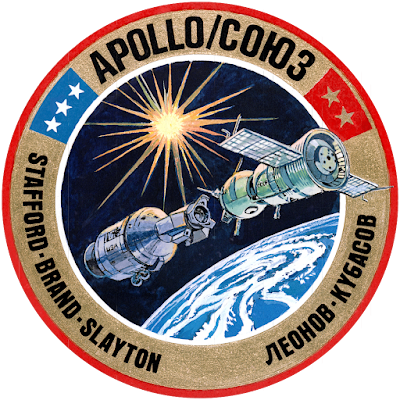Apollo 17 was launched.
It was the last of the Apollo missions and accordingly the last manned mission to the Moon.
This seems like something I should recall, but I don't. I would have been in 4th Grade at the time, and moon missions were a big deal, but as noted, this was the last one and the 17th Apollo Mission. Fifty years later, I can't recall having paid too much attention to this one, although it seems to me I dimly recall it.
On the same day, the last conscription induction call in U.S. history occurred. The call was to have been one of two to occur in 1972, but the second one was suspended due to a national day of mourning called by President Nixon in honor of Harry S. Truman, who died on December 26, 1972. The conscription call would have occurred on December 28.
The men who were chosen in the draft lottery on this day did not, I believe, immediately but in 1973. This was, after all, in December. Having said that, I'm not completely certain. 49,514 men were inducted into the service via conscription in 1972. 646 were inducted in 1973, with the final induction occurring on June 30, 1973, The height of the Vietnam War era induction occurred in 1966, when 382,010 men were inducted.
On January 27, 1973, President Nixon suspended conscription. In part this recognized the impending end of the Vietnam War, but the move was also clearly political and designed to address increasing civil unrest in spite of the obvious coming end of the war. Conscription had been resumed in 1948 and the Cold War was far from over, but moral in the U.S. military was disintegrating to the crisis level, which provided another, albeit unstated, reason for suspending the draft. The Army started rebuilding itself as an all volunteer force in 1973, but it would really take until the Reagan Administration for a new, effective Army to form.
Congressional authority to induct expired on June 30, 1973, although oddly lottery drawing continued until March 12, 1975. Registration for conscription terminated on April 1, 1975, which I can recall occurring. Registration would resume, however, a mere five years later, in 1980, and it remains a legal obligation for men.
Men drafted on this day would have found themselves in the odd situation of having to serve in the U.S. Army until late 1974, according to The New York Times, which ran a headline on November 23, 1974, that the last conscripts had been discharged. If that is correct, they must have been let go slightly ahead of schedule, which likely would have reflected the end of the Vietnam War and a drawdown that sought to eliminate men who didn't want to be there. Otherwise, the June 30, 1973, inductee should have served until June 1975. The last pool applied only to men born in 1952 or later, so it applied only to men in their early 20s, for practical purposes.
The end of the draft really returned the U.S. military to its historical norm. The Army had not conscripted at all until the Civil War, and then did not do it again until World War One. Militia service, of course, was mandatory in the US up until around the Civil War, when it started to slowly die off as a observed state requirement. The World War One and World War Two drafts had been enormous, with the US drafting 2,294,084 in 1918 alone, and 3,323,970 in 1943. Following 1940, there'd only been one year, 1947, in which there had been no inductions, up until 1974.
The last man inducted was Dwight Elliot Stone. He was a married plumbers apprentice living in Sacramento who was 24 years old at the time and had two kids. He tried to avoid to hide induction before finally turning himself in. He served in the Army for 17 months (which would make the NYT article at least a bit inaccurate) before being discharged early for reasons he wasn't aware of, but which were probably due to the fact that by 1975 the Army didn't really want unwilling soldiers around.
Stone went to basic training at Ft. Polk, at which the press followed him around a bit. He was trained as an electronic technician, after which he was stationed at Ft. Monmouth, New Jersey. Upon his discharged he was quoted as saying "I wouldn't have joined. It wasn't the place to be. I wouldn't recommend it for anyone. I didn't like it. It was poorly run.''
In the early 70s, it was in fact poorly run.
Stone went back to work as a plumber/pipe fitter in Sacramento, but over time his view changed, as it did for many who had been conscripted in the same period. He later stated that while he didn't like being in the Army, he'd had a lot of fun while in it, and he used his service benefits to attend two years of college. His oldest son enlisted in the Marine Corps.













